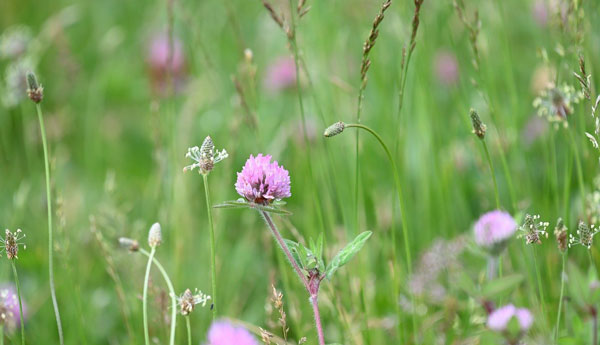
Last time, we mentioned the importance of planting cover crops in the off season. Thing is, there are quite a few different types of cover crops, and while all are helpful, each has its own particular specialty. Read on for the various uses of cover crops, and the particular benefits of several popular variants.
Erosion
The most common reason for planting cover crops is to prevent soil erosion. This benefit is multifaceted, as in addition to preventing the actual, physical removal of soil, it helps retain the various nutrients that water can wash away. Mustard is a favorite to reduce erosion, and oddly enough, can simultaneously help keep soil from overly compacting. A SARE (Sustainable Agriculture and Research Education) fact sheet actually found this brassica reduced soil erosion by 82-percent compared to a field without cover crops. Barely and wheat are other favorites, as are legumes, like red and crimson clover.
Attracting Pollinators
Another thing cover crops can do is attract pollinators. When they’re present, you almost don’t notice as everything is simply working as it should, but there are few things that can break a garden quicker than an absence of pollinators. Luckily, most cover crops attract beneficial bugs. Anything listed in this article provides an excellent lure for beneficial insects.
Nitrogen Source
Low on nitrogen? Consider alfalfa, white or red clover, or lupin. Their low carbon to nitrogen ratios (under 20:1) mean these plants release excess nitrogen into the soil, which can be later used by your plants in the spring.
Nitrogen Scavenger
What if you have too much nitrogen? Find plants for which the opposite is true. Canola and sunflower will scavenge any excess nitrogen out of your soil in a hurry, For best results in both cases, terminate it at the peak of its maturity.
Weed Management
Simply looking to crowd out weeds, and keep the grass at bay? You’ll want the hardiest, most competitive plants available. Buckwheat, canola and sunflower are all great choices.
Nematode Control
Finally, if you’ve a problem with potato cysts, soybean cysts or root-knot nematodes, you need to get yourself some nematode control. Brassicas and mustards are again helpful here, as is–once again–canola.
Hopefully these basic choices will give you some helpful options for the garden this off-season. Happy gardening!
A humble homesteader based in an undisclosed location, Lars Drecker splits his time between tending his little slice of self-sustaining heaven, and bothering his neighbors to do his work for him. This is mainly the fault of a debilitating predilection for fishing, hunting, camping and all other things outdoors. When not engaged in any of the above activities, you can normally find him broken down on the side of the road, in some piece of junk he just “fixed-up.”
